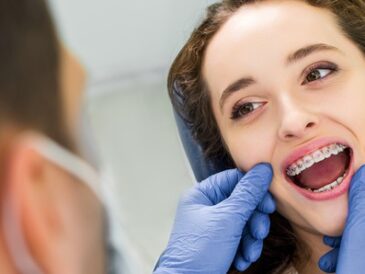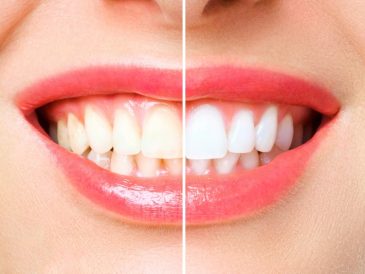Keeping your teeth and gums healthy is more than just about a bright smile. Preventive dental care is the foundation of maintaining not only oral health but overall wellness. But what exactly does preventive dental care entail? Let’s look into what you need to know.
1. Understanding Preventive Dental Care
Preventive dental care involves practices that help maintain optimal dental health and prevent future problems. It includes everything from routine check-ups to daily habits like brushing and flossing. By staying proactive, you can avoid many common dental issues.
2. Why Regular Check-Ups Matter
Routine dental visits are crucial. Regular check-ups allow dentists to catch issues early, making treatments less invasive and more effective. Dentists typically look for cavities, gum disease, and other potential problems that could become serious if left untreated.
How Often Should You Visit?
It’s generally recommended to visit your dentist every six months, although some individuals may require more frequent visits based on their specific needs. Your dentist can help tailor a schedule that works best for you.
3. Daily Dental Habits
Establishing healthy habits at home is just as important as those biannual visits. Here’s what you should include in your daily routine:
-
Brush your teeth twice a day for at least two minutes using fluoride toothpaste.
-
Floss daily to remove plaque and food particles between teeth.
-
Use mouthwash to wash away any remaining debris.
-
Replace your toothbrush every three to four months or sooner if the bristles are frayed.
4. Eating Right for Dental Health
Nutrition plays a significant role in your dental health. Foods high in sugar can lead to tooth decay, while a balanced diet supports strong teeth and gums. Here are some tips:
-
Limit sugary snacks and drinks.
-
Drink plenty of water, especially fluoridated water, for hydrated and healthy teeth.
-
Eat a variety of nutrient-rich foods, including fruits, vegetables, and lean proteins.
5. The Role of Fluoride
Fluoride is essential in preventing tooth decay. It strengthens tooth enamel, making it more resistant to acid attacks from plaque, bacteria and sugars. Incorporate fluoride toothpaste into your routine, and discuss fluoride treatments with your dentist if necessary.
6. Painless Experiences
Fearing discomfort at the dentist is common, but modern dentistry has evolved to create a more comfortable experience. Many practices focus on ensuring a painless dental experience through techniques and technologies designed with patient comfort in mind.
7. Specialized Dental Care
For those seeking specific dental enhancements, aesthetic dentistry offers options to improve the appearance of their smiles. From teeth whitening to veneers, these treatments can provide a boost in confidence while maintaining oral health.
8. Dealing with Dental Anxiety
If dental visits make you anxious, know that you’re not alone. Communicating with your dentist about your fears can lead to a more comfortable experience. Consider these approaches:
-
Bring headphones to listen to calming music during procedures.
-
Request information about what will happen during your visit to alleviate uncertainties.
-
Relaxation techniques like deep breathing should be considered before appointments.
9. Orthodontic Options
Orthodontics isn’t just about straight teeth; it’s also about correcting bite issues and improving overall oral function. For those considering clear aligners, consulting with professionals like this Las Vegas Invisalign dentist can offer guidance on achieving a more aligned smile discreetly and effectively.
10. The Importance of Education
Staying informed about your dental health empowers you to make better choices. Dentists are valuable resources for education on the best practices in care and prevention.
Learning Opportunities
Take advantage of educational materials provided by your dental office, and don’t hesitate to ask questions during visits. Understanding the “why” behind certain practices can motivate you to stay on track with your dental care routine.
11. The Impact of Smoking on Dental Health
Smoking can significantly harm your oral health, leading to stained teeth, gum disease, and even oral cancer. Quitting smoking not only improves your overall health but also enhances your dental well-being. Seek support if you’re trying to quit and discuss options with your dentist.
12. Dental Sealants for Added Protection
Dental sealants are a protective coating applied to the chewing surfaces of molars to prevent cavities. They are especially beneficial for children but can also be used by adults at risk for tooth decay. Discuss sealants with your dentist to see if they’re right for you.
13. The Link Between Oral Health and Overall Health
Oral health is closely linked to overall health. Conditions like diabetes can affect gum health, while poor oral hygiene can contribute to heart disease. Maintaining good dental care is essential for your entire body’s wellness, highlighting the importance of preventive strategies.
14. Emergency Dental Care
Knowing how to handle dental emergencies can save teeth and prevent further complications. Whether it’s a knocked-out tooth or severe toothache, understanding the steps to take can make a critical difference. Keep your dentist’s contact information handy and seek immediate care when urgent issues arise.
Final Thoughts
Preventive dental care is a lifelong commitment that pays off in the long run. By maintaining regular dental visits, cultivating healthy daily habits, and staying informed, you can enjoy a lifetime of oral health and a confident smile. Remember, each step you take is an investment in your overall well-being.





